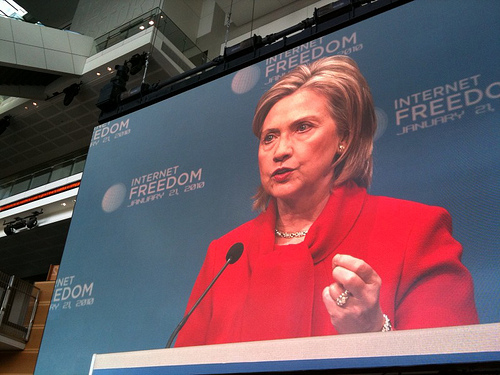internet diplomacy
Three young Canadian Jewish women have helped to launch a new web portal – Omanoot.com – an English-language site showcasing Israeli arts. Quite possibly the first site of its kind, it encompasses all the arts of an entire country, including film, music, literature and visual art.
DOHA --- In past sessions of the Al Jazeera Forum, held each year in the network’s Qatar hometown, reform in the Arab world was discussed with an air of resignation: “Someday…maybe.”
In her time as Secretary of State, Hillary Clinton has made supporting internet freedom a core tenet of U.S. foreign policy. Two major speeches, months of debate, and a wave of Middle East protests making use of online technologies later, it’s clear that discussion about internet freedom as a U.S. foreign policy priority is here to stay.
There continues to be an ongoing debate about how to regulate the Internet. This conundrum arises from two questions. Is the Internet a platform for old ideas to be transformed in a new medium, or rather a medium for all-together new paradigms of thought?
There continues to be an ongoing debate about how to regulate the Internet. This conundrum arises from two questions. Is the Internet a platform for old ideas to be transformed in a new medium, or rather a medium for all-together new paradigms of thought?
Though divided by borders, the Arab nations are linked by ancient bonds of language, ethnicity, and faith, all of them tightened by the modern technology of Twitter, Facebook, and Al Jazeera. The pro-democracy protests started in Tunisia and raced east like rows of falling dominos.
Suri said that the image of India’s foreign office has been that they’re “fuddy duddy”, and they joined Twitter and Facebook with the intent of building a positive narrative about india, development partnerships, and create Friends of India communities via facebook.”








